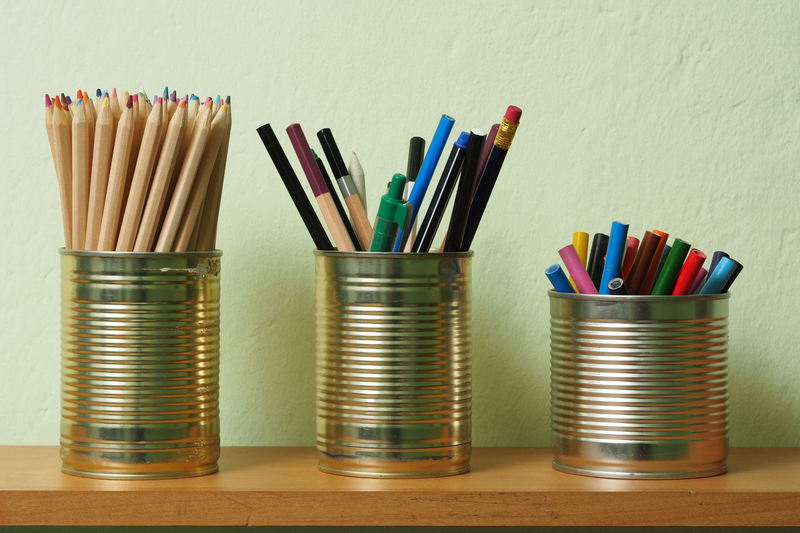The Ultimate Guide to Saving on Bulky Waste Item Disposal
Getting rid of old couches, broken refrigerators, or that worn-out mattress isn't always quick or cheap. Bulky waste item disposal can be a hassle--sometimes expensive, sometimes confusing, and always important for the environment. If you're dreading this process, don't worry. Our Ultimate Guide to Saving on Bulky Waste Item Disposal will show you practical, cost-effective, and even eco-friendly solutions.
What Qualifies as Bulky Waste?
Before we jump into tips and money-saving hacks, let's clarify what counts as bulky items. Typically, bulky waste includes:
- Old furniture, like sofas, beds, tables, and dressers
- Large household appliances such as refrigerators, ovens, and washing machines
- Mattresses, box springs, and bed frames
- Carpets and large area rugs
- Renovation debris, like doors or toilets (check local rules!)
- Garden waste: tree stumps, large branches (not just leaves and clippings)
Note: Hazardous materials (paint cans, chemicals) rarely count as bulky waste and require special handling.

Why Bulky Waste Disposal Can Be Expensive
Disposal costs stem from labor, transportation, recycling fees, and landfill levies. Municipal collection options vary, but most cities charge for bulk pickups beyond annual free allotments. Private junk removal services are convenient but can charge hundreds of dollars per load or per item.
Key factors that affect pricing:
- The size, weight, and number of items
- Distance from disposal or recycling sites
- Local landfill or recycling fees
- Manual labor for loading bulky or awkward items
- Special requirements for items like refrigerators (due to refrigerants)
How to Save Money on Bulky Waste Item Disposal
Don't pay more than you should! Here are proven strategies to reduce your large item disposal costs.
1. Try to Sell or Give Away Usable Items
The most cost-effective way to dispose of bulky waste is to avoid disposal altogether. If your item can still be used, consider:
- Online Marketplaces: List your items on Facebook Marketplace, Craigslist, Freecycle, or OfferUp.
- Donation Centers: Charities like Habitat for Humanity, Goodwill, or the Salvation Army often accept furniture and appliances. *Some even offer free pick-up!*
- Community Giveaways: Place items on your curb with a "free" sign, or post in community groups.
Bonus Tip: Clean your items first and take clear photos--it's amazing how quickly bulky items can go when they're presented well!
2. Use Municipal Bulky Waste Collection Services
Most cities and towns offer some form of curbside bulky waste collection. Typically:
- Annual pickups: Many municipalities offer residents a limited number of free bulky item pickups per year.
- Scheduled events: Some cities host spring/fall clean-up days when you can drop off bulky waste for free or at a discount.
- Pay-per-item: Beyond your free allotment, you may pay a modest fee per extra item.
Tip: Check your city's website or local waste authority for details--and plan your purging to maximize those free pickups!
3. Self-Haul to Transfer Stations or Landfills
If you have a vehicle--especially a truck or van--you can often save by hauling your bulky waste items directly to your nearest transfer station or landfill.
- Rates are often lower than junk removal companies and priced by weight or per item.
- Some municipal dumps allow residents to drop off certain items for free or a low fee.
- Check for resident discount days or coupons from your local government.
Don't forget: You may need to bring proof of residency and separate recyclables from landfill-bound items.
4. Share Costs Through Group Disposal
If you only have a small load, team up with neighbors, friends, or family.
- Rent a dumpster together and split costs.
- Arrange a community junk-haul day and share truck rental fees or landfill charges.
- Bulk rates for coordinated drop-offs can be significant!
Community spirit pays off--not just in savings, but also in a cleaner neighborhood.
5. Consider Professional Junk Removal Companies Wisely
Sometimes, you just need help. Junk removal services haul away almost anything, but prices vary widely. To save:
- Get at least three quotes--pricing is often negotiable.
- Book during off-peak times for possible discounts.
- Check for "curbside only" options that cost less than full-service removal.
- Ask about recycling or charitable donation partnerships which might offset some costs.
Insider tip: On average, prices are lowest for curbside pickups of a few items versus full house cleanouts.
6. Break Down Items Whenever Possible
Disassembling beds, tables, and entertainment centers makes transport cheaper and may allow you to use standard garbage collection for smaller pieces.
- Smaller items fit more easily into vehicles or dumpsters.
- Parts can be recycled individually, saving fees.
- Follow your waste company's size restrictions--it may save you the "bulky item" surcharge.
7. Rent a Dumpster if Doing a Major Clean-out
For renovations or estate cleanouts, roll-off dumpster rentals offer value for volume, especially if you fill them quickly and split costs.
- Choose the right size--too big and you overpay; too small and you pay for extra haul-aways.
- Compare pricing from local companies and national brokers.
Pro tip: Avoid overfilling--the "overweight" fees can cancel out your savings!
Eco-Friendly and Legally Responsible Disposal
Saving money shouldn't come at the planet's expense. Responsible bulky waste removal means:
- Recycling appliances, mattresses, and electronics where possible
- Donating still-useful items
- Following local laws for hazardous materials--illegal dumping is expensive and damaging!
- Using certified e-waste and metal recyclers for electronics or scrap metal
Cities & Programs with Free or Discount Bulky Waste Disposal
Some communities go the extra mile for sustainability and wallet-friendly disposal. Look for:
- Free appliance or furniture drop-off days
- Special electronics or mattress recycling events
- Partnerships with recycling centers or thrift stores that accept drop-offs
Contact your city hall or solid waste authority for program dates and eligibility requirements.
Hidden Ways to Save on Bulky Item Collection
- Coupons & Loyalty Programs: Some waste haulers or junk removal companies offer first-time discounts, seasonal promotions, or loyalty discounts.
- Bulk Pricing: Clearing out multiple rooms? Many haulers price per truckload, not per item--adding extras might not cost much more.
- Tax Deductions: Donating furniture or appliances to charity could provide a valuable tax write-off. Request a donation receipt!
- Selling Scrap: Some old appliances (refrigerators, washers) have resellable scrap metal or working parts. Call local scrapyards for prices.
- Negotiation: Don't be afraid to ask for a better rate--many companies will match or beat competitors' offers.
What NOT To Do When Disposing of Bulky Waste
- Never dump illegally. Fines can exceed $1,000--and damage the local environment.
- Don't leave items on the curb without collection scheduled. They may attract fines or penalties, and make your neighborhood less attractive.
- Always check for hazardous parts. Freezers, fridges, and some electronics require special handling.
- Don't hire unlicensed junk haulers. Uninsured companies may leave you liable for improper disposal.
Case Study: Saving on Bulky Waste Removal--A Real-Life Example
Rachel, a homeowner in Seattle, needed to get rid of an old sectional sofa, a broken refrigerator, and a pile of lumber after a remodel.
- Usable Pieces: She posted the sofa on Freecycle--and it was picked up in two days.
- Fridge: Seattle Public Utilities accepted her old refrigerator during a special appliance recycling event for free.
- Lumber: She and her neighbor pooled their loads for a shared trip to the transfer station, cutting per-person disposal costs by 60%!
Moral: Mixing strategies can dramatically lower your cost and make the process more eco-friendly.

Frequently Asked Questions About Bulky Waste Item Disposal
-
Q: Can I put bulky waste in my regular trash bin?
A: Usually, no. Most residential curbside bins are not designed for large items; you risk fines or incomplete pickup. -
Q: Are there free options for bulky item collection?
A: Many cities offer limited free pickups--contact your local service or visit their website to confirm. -
Q: Do appliances require special disposal?
A: Yes. Fridges, AC units, and similar appliances usually require certified removal due to refrigerants. -
Q: Can I donate furniture with minor damage?
A: Sometimes, yes. Call charities beforehand to learn their policies, or sell/donate in "as is" condition on community boards.
Conclusion: Choose Your Best Money-Saving Method
Bulky waste item disposal doesn't have to drain your wallet or harm the planet. By selling or giving away reuseable items, leveraging municipal programs, self-hauling, sharing costs, and adhering to local regulations, you can save significant money and spare yourself headaches. Always check your local options and consider what you might recycle, donate, share, or sell before paying for professional hauling.
Remember: Planning ahead is the ultimate way to save on large item disposal--both for your budget and your community. For more tips on affordable and sustainable waste management, stay tuned to our blog!
